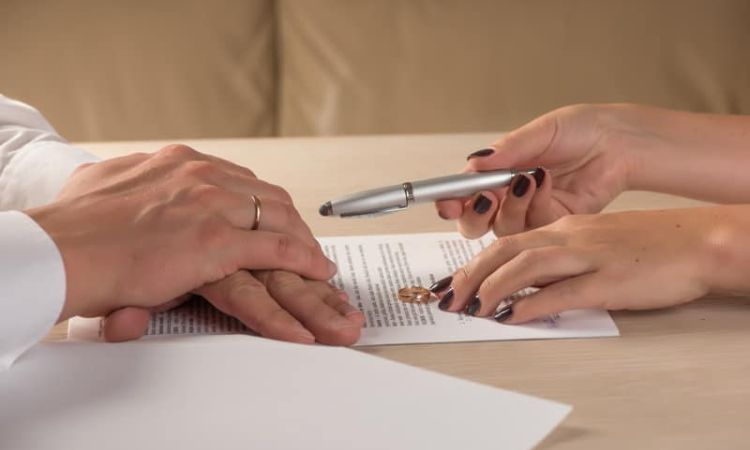Divorce without a lawyer
Divorce is a challenging and emotional process for any couple, and it can become even more complicated when lawyers get involved. However, it is possible to navigate the divorce process without the assistance of a lawyer. In this blog, we will explore the concept of “divorce without a lawyer,” understanding the process, its benefits, and the important considerations one must keep in mind. Let’s delve into the world of self-representation in divorce proceedings.
Is Divorce Without Lawyer Feasible?
Divorcing without a lawyer, also known as self-representation or pro se representation, is feasible for certain couples who have relatively simple and amicable divorces. It involves handling all legal aspects of the divorce without the assistance of an attorney. While it may not be suitable for everyone, many couples have successfully navigated the divorce process on their own.
Understanding Self-Representation
Self-representation means that the individuals filing for divorce take on the responsibility of preparing and filing all the necessary paperwork, understanding the legal requirements, and representing themselves in court. This process can save money on legal fees but requires careful consideration and research to ensure everything is done correctly.
The Pros and Cons
Pros:
- Cost savings on attorney fees.
- More control over the process and timeline.
- Confidentiality of personal matters.
- A sense of accomplishment and empowerment.
Cons:
- Legal complexities may be overwhelming.
- Emotional stress and strain.
- Potential for mistakes with long-term consequences.
- Lack of legal advice and expertise.
The Legal Requirements for Divorce
Before proceeding with a divorce without a lawyer, it is essential to understand the legal requirements and eligibility for divorce.
Read more: Fathers Rights Lawyer
Eligibility for Divorce
Every state has specific residency requirements that individuals must meet to file for divorce in that jurisdiction. Typically, you or your spouse must have lived in the state for a certain period before initiating the divorce.
Residency and Jurisdiction
Jurisdiction refers to the court’s authority to hear a divorce case. You must file for divorce in the state where you meet the residency requirements.
Grounds for Divorce
In some states, divorces require grounds or reasons for the marriage’s dissolution, such as irreconcilable differences or marital misconduct. Other states are “no-fault” jurisdictions, allowing couples to divorce without having to prove fault.

The Process of Divorce Without a Lawyer
The divorce process without a lawyer involves several steps, from filing the initial petition to finalizing the divorce decree.
Initiating the Divorce
The process begins by filing a divorce petition in the appropriate court. The petition outlines the reasons for divorce and the relief sought.
Serving Divorce Papers
After filing the petition, you must serve divorce papers to your spouse, providing them with notice of the divorce proceedings.
Responding to a Divorce Petition
If you are on the receiving end of a divorce petition, you must respond within a specified time frame.
Discovery Process
During the discovery phase, both parties exchange relevant information and documents related to assets, debts, and other matters.
Mediation and Settlement Talks
Parties may opt for mediation to resolve disputes and come to an agreement on issues like property division, child custody, and support.
Preparing for Court
If an agreement cannot be reached, the case will proceed to court, where both parties present their cases before a judge.
The Benefits of Divorcing Without a Lawyer
Divorcing without a lawyer offers several advantages for certain couples.
Cost Savings
Hiring a lawyer can be expensive, and by representing yourself, you can save on legal fees.
Maintaining Control
Self-representation allows you and your spouse to maintain control over the divorce process and make decisions together.
Confidentiality
Without a lawyer, personal matters remain private, as there is no need to disclose sensitive information to a third party.
Streamlined Process
In some cases, divorcing without a lawyer may lead to a quicker and more straightforward process.

Important Considerations and Challenges
While divorcing without a lawyer has its benefits, it also comes with considerations and challenges.
The Complexity of Legal Procedures
Divorce laws can be complex, and navigating them without legal expertise can be overwhelming.
Emotional Toll
Divorce is emotionally taxing, and self-representation may add to the stress.
Division of Assets and Debts
Splitting assets and debts without professional guidance may lead to unfair outcomes.
Child Custody and Support
Deciding on child custody and support without legal advice can be challenging and may impact the children involved.
Legal Mistakes and Consequences
Mistakes in legal procedures can have long-term consequences on your rights and finances.
Discover more: Boating Accident Lawyer
When Is It Advisable to Hire a Lawyer?
While self-representation can work for some couples, there are situations where hiring a lawyer is advisable.
Complex Financial Situations
If you have significant assets, complex financial arrangements, or businesses, a lawyer can ensure a fair division. In contentious divorces with disputes, a lawyer can protect your rights and advocate on your behalf.
Custody and Support Disputes
Issues related to child custody and support often require legal expertise to achieve the best outcome for everyone involved.
Tips for a Successful Self-Representation
To increase your chances of success with self-representation, follow these tips.
Educate Yourself on Divorce Laws
Research the divorce laws in your state thoroughly to understand your rights and obligations. Organize and gather all relevant financial and personal documentation required for the divorce process.
Maintain a detailed calendar and follow court deadlines and procedures diligently.
Seek Professional Advice When Needed
Don’t hesitate to consult with a lawyer for specific legal advice or complex issues.
Divorce is emotionally draining, but there are ways to cope with the process.
Lean on your support network to help you through this challenging time.
Consider Therapy or Counseling
Professional counselling can provide valuable tools to cope with the emotional aspects of divorce. Keep your focus on building a new and fulfilling life post-divorce.
Conclusion
Divorcing without a lawyer is an option for couples seeking an amicable and straightforward dissolution of their marriage. While it can save costs and offer more control, it requires careful consideration of legal complexities and emotional challenges. For couples with significant assets or high-conflict situations, hiring a lawyer may be the best choice. Remember that divorce is a major life transition, and seeking support and professional guidance when necessary can make the process smoother and more manageable.
FAQs
Is divorce without a lawyer legally valid?
Yes, divorcing without a lawyer is legally valid if all legal requirements are met and the divorce decree is properly executed.
Can we use a mediator instead of a lawyer?
Yes, couples can opt for mediation to resolve disputes instead of hiring a lawyer.
Can we modify child custody arrangements later?
Yes, child custody arrangements can be modified in the future if circumstances change significantly.
What if we disagree on property division?
If an agreement cannot be reached, the court will make decisions on property division.
Can we remarry after a divorce without lawyer?
Yes, after a divorce is finalized, both parties are free to remarry if they wish.
